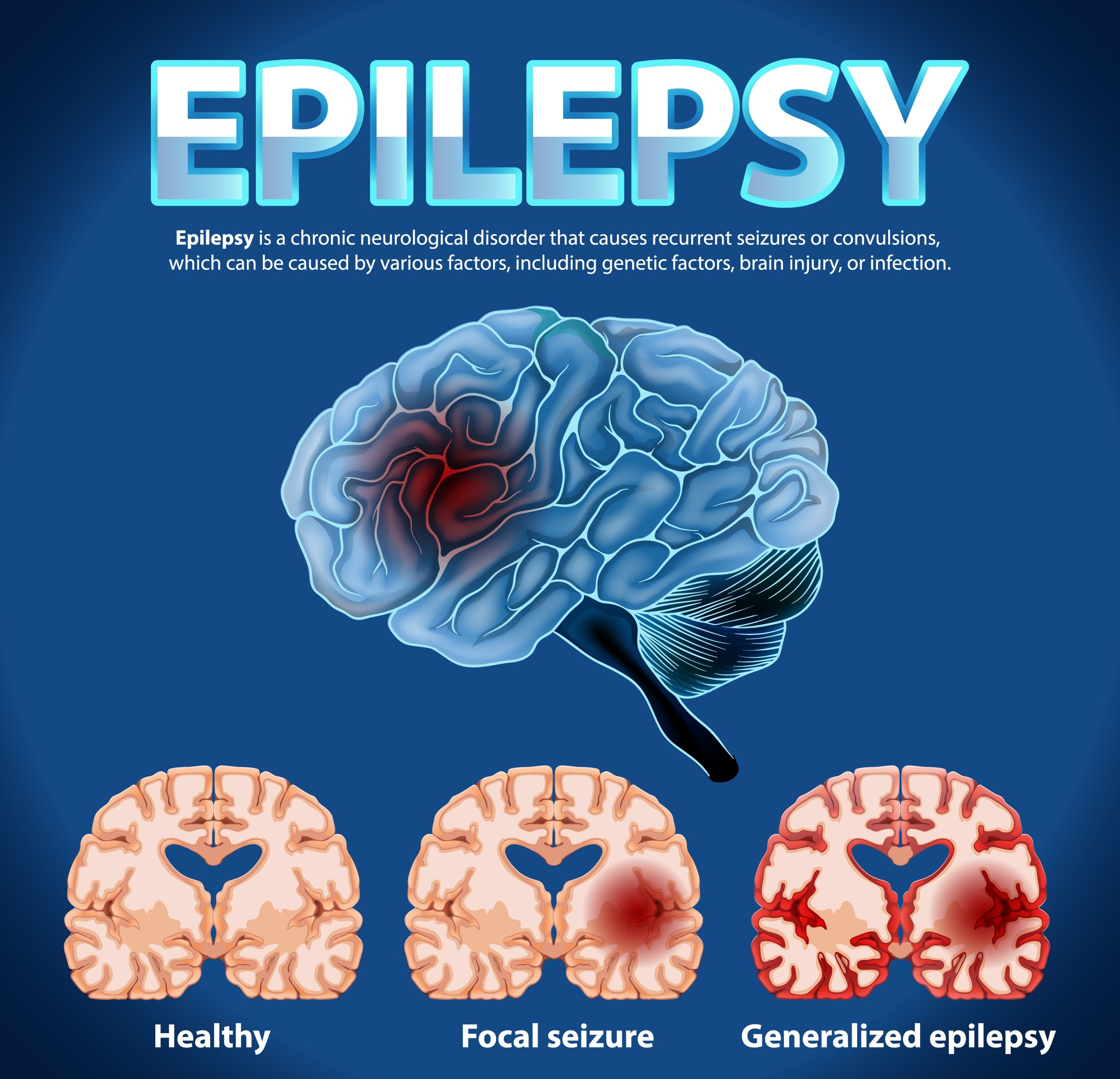Breaking Stigmas, Embracing Strength, and Inspiring Hope
Epilepsy is a neurological disorder characterized by recurrent, unpredictable seizures. These seizures are caused by abnormal electrical activity in the brain. The types and frequency of seizures can vary widely among individuals with epilepsy. Seizures can manifest as altered consciousness, unusual sensations, or uncontrolled movements. While there is no cure for epilepsy, the condition can often be managed with medications, lifestyle adjustments, and, in some cases, surgery. It’s crucial for individuals with epilepsy to work closely with healthcare professionals to determine the most effective treatment plan for their specific needs.
How is it to live with Epilepsy?
Living with epilepsy can present unique challenges, as individuals may experience unpredictable seizures that vary in type and intensity. The impact of epilepsy on daily life can depend on factors such as the frequency of seizures, the effectiveness of treatment, and the presence of associated conditions. Here are some aspects to consider:
- Seizure Management: Individuals with epilepsy often need to manage the possibility of seizures in their daily activities. This may involve taking medications as prescribed, recognizing triggers, and making lifestyle adjustments to minimize risks.
- Emotional and Psychological Well-being: Epilepsy can affect mental health, leading to feelings of anxiety, depression, or frustration. Coping with the emotional aspects of the condition is an essential part of overall well-being.
- To promote emotional well-being with epilepsy, individuals can build a strong support system, engage in stress-reduction techniques, seek professional counseling, and maintain a healthy lifestyle, emphasizing regular exercise and sufficient sleep.
- Lifestyle Adjustments: Depending on the nature of seizures, individuals may need to make certain lifestyle modifications, such as avoiding specific triggers, getting adequate sleep, and managing stress.
- Social Stigma: Epilepsy may be accompanied by social stigma or misconceptions. Advocacy and education efforts aim to dispel myths and raise awareness about the condition.
- Safety Concerns: Seizures can pose safety concerns, especially if they occur unexpectedly. Taking precautions, such as not driving during certain periods or avoiding activities with a high risk of injury, is common.
- Medical Monitoring: Regular medical check-ups and monitoring are essential to track the effectiveness of treatment, make necessary adjustments, and address any emerging health concerns.
What are the dos and don’ts for Epilepsy?
Dos and don’ts for individuals with epilepsy can vary depending on the specific circumstances and type of seizures. It’s important to note that these recommendations should be discussed with a healthcare professional, as individual cases may differ. Here are general guidelines:
Dos:
- Take Medications as Prescribed: Adherence to prescribed medications is crucial for managing seizures effectively.
- Get Enough Sleep: Establish and maintain a regular sleep schedule to reduce the risk of seizures triggered by sleep deprivation.
- Manage Stress: Practice stress-reduction techniques, such as meditation or deep breathing, to help minimize stress-induced seizures.
- Stay Hydrated: Dehydration can contribute to seizure activity, so it’s essential to stay well-hydrated.
- Maintain a Regular Routine: Consistency in daily routines can help stabilize mood and reduce the risk of triggering seizures.
- Wear Medical Identification: In case of an emergency, wearing a medical bracelet or necklace that indicates epilepsy and includes emergency contact information can be beneficial.
- Exercise Regularly: Engage in regular, moderate exercise, as it can contribute to overall well-being.
Don’ts:
- Skip Medications: Missing doses of prescribed medications can increase the risk of seizures.
- Consume Excessive Alcohol: Excessive alcohol consumption can lower the seizure threshold and should be avoided.
- Neglect Regular Medical Check-ups: Regular medical check-ups are essential for monitoring the effectiveness of treatment and making necessary adjustments.
- Engage in Strenuous Activities without Supervision: Activities with a risk of injury, such as swimming or climbing, should be done with supervision.
- Understand and recall the triggers that can induce seizures, and make an effort to avoid them.
- Drive Without Medical Clearance: In many places, individuals with epilepsy may be restricted from driving, especially if seizures are not well-controlled. It’s important to follow local regulations.
- Neglect Mental Health: Address any mental health concerns, as conditions like anxiety and depression can impact overall well-being and may contribute to seizure activity.
Individuals with epilepsy should work closely with their healthcare team to create a personalized plan that addresses their specific needs and circumstances.
Ensuring Safety with Epilepsy
Prioritizing safety involves gaining a comprehensive understanding of epilepsy, the causes and triggers of seizures, preventive measures, and appropriate actions during an episode. Consultation with a neurologist, especially if epilepsy is suspected, provides essential information, guidelines, and a tailored plan for a secure and fulfilling life.
Nizamiye Hospital, situated in Abuja, stands ever-prepared to provide its esteemed clientele with specialized treatment across a spectrum of health issues. Our dedicated team of medical professionals, boasting an extensive repertoire of over 24 specialized departments, ensures the successful, cost-effective, and efficient management of various healthcare concerns. Located at Plot 113, Sector S, Cadastral Zone, Life Camp, Abuja, Nigeria, we extend a warm invitation for your visit. For inquiries or appointments, feel free to call or text Veno from Public Relations at 08166666023 – 08056339444


Share this entry